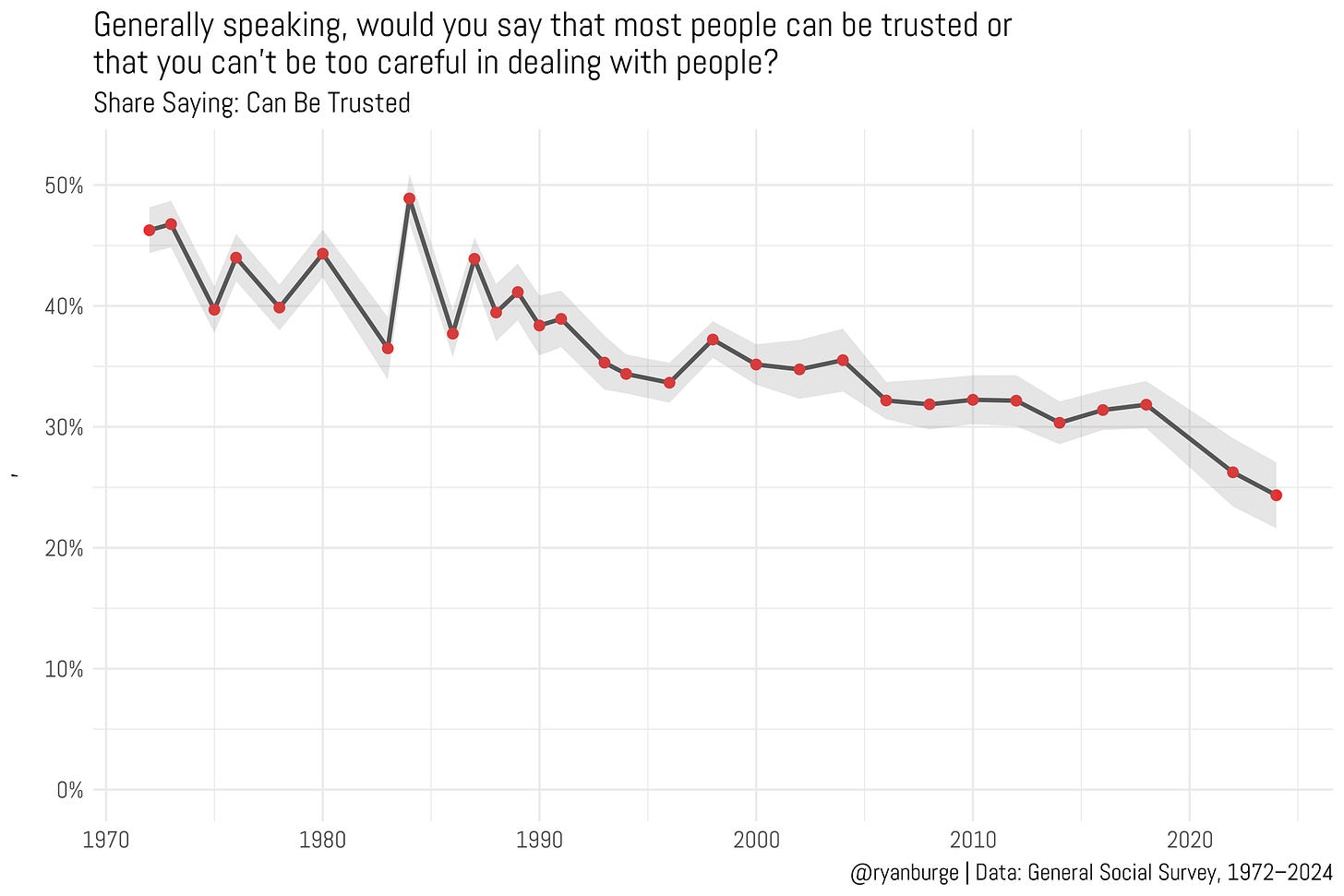Hoping All Things in a Low Trust Society
Why we should learn to trust each other again

A few days ago, Ryan Burge posted the following chart to Twitter, commenting: “In the 1970s, about 45% of Americans reported that ‘most people can be trusted.’ In 2024, that share had dropped to 24%. The lowest on record.”
It’s not hard to understand why contemporary people would be hesitant to agree that most people can be trusted. When I scroll through social media, I’m regularly bombarded with reports of abuse and corruption by teachers, religious leaders, politicians, parents, law enforcement personnel, corporations, and the media. Massive stories that rock the nation and local stories that get blasted into the national spotlight. And so many of those stories are not stories of justice being served but injustice and indifference, of the world going on as it was and the victims having to learn to live with their wounds. And it’s not just social media, either. In my own life I’ve seen people abuse their positions of authority and get away with it. Like Jeremiah, we want to cry out to God, “Why does the way of the wicked prosper? Why do all who are treacherous thrive?” (Jeremiah 12:1). It saps your trust of the human race. It makes you suspicious of your neighbor. The more you are drawn into these stories of abuse, the more you look at your neighbor sideways. And yet, we are told two things in Scripture that challenge this low-trust assumption. First, we are called to love our neighbors as ourselves (Mark 12:31). And second we are told that part of the description of love involves hoping all things (1 Corinthians 13:7). Together, I believe these verses call us to a position of prudent and hopeful trust toward our neighbor, even strangers. And that this kind of trust is critical for building a functional society.



